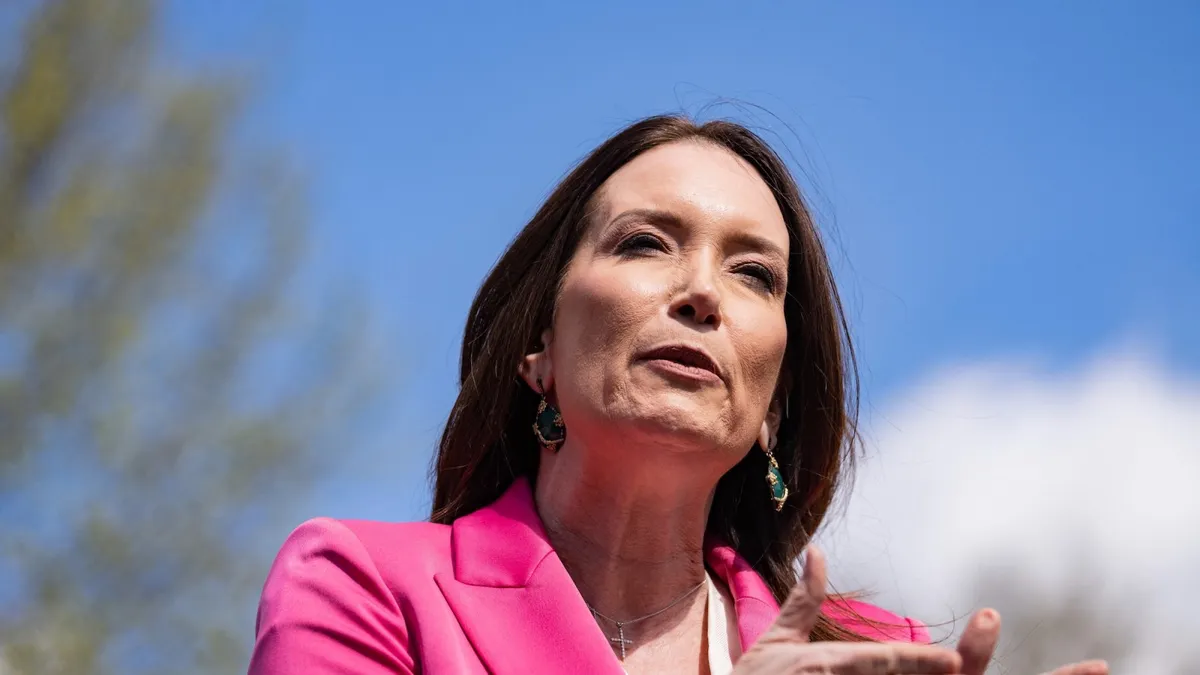
A recent report from a conservative think tank has raised significant concerns regarding the methodology used by the Trump administration to calculate tariffs, which experts argue is causing substantial disruption in the economy. This revelation comes amid ongoing debates about the effectiveness and implications of the Trump tariffs that were implemented on Wednesday. During an interview on CNN's State of the Union, host Jake Tapper highlighted the staggering impact of these tariffs, stating they have “wiped $6.6 trillion of wealth off of Wall Street.”
In the wake of these troubling findings, Agriculture Secretary Brooke Rollins stood firm in defense of the administration's approach. Tapper pointed out that economists from the American Enterprise Institute (AEI), a respected conservative think tank, recently identified what they describe as a critical error in the Trump administration's calculations. “Conservative economists at the AEI argue that the basis for determining tariff rates should have focused on the elasticity of import prices in relation to tariffs, rather than retail prices,” Tapper explained.
According to AEI economists Kevin Corinth and Stan Veuger, their research indicates that if the Trump administration had employed the correct calculations, the tariffs imposed would be approximately a fourth of their stated levels. They assert, “Our view is that the formula the administration relied on has no foundation in either economic theory or trade law.” This assertion raises pivotal questions about the economic strategies employed during the Trump era.
During the interview, Tapper pressed Rollins for her response to the AEI's claims, questioning the validity of the administration's approach. Rollins, in her defense, characterized AEI as an organization that has historically opposed Trump’s policies, stating, “They have never been a friend of the president’s. They have never been a friend of an America First agenda.” Despite her criticisms, Rollins did not provide any evidence to counter the AEI's findings.
Moreover, she expressed unwavering confidence in the administration's economic team, claiming, “I have 100 percent faith in the formulas that they used and how they came up with these numbers.” However, in a surprising admission, Rollins conceded that she had not read the AEI article critiquing the tariff calculations. “I have not read it,” she acknowledged, prompting Tapper to suggest, “You should read it.”
The controversy surrounding the tariff calculations is further complicated by insights from a Trump official, who revealed that President Trump had a clear agenda regarding tariff figures. According to this source, Trump desired “huge” numbers to compel other nations to engage fairly in trade. “The president isn’t a number-crunching guy, per se, but he strongly demanded big numbers,” the official stated. “And I think you can see today that those numbers are huge.” Yet, with AEI’s economists asserting that these numbers may be four times inflated, the economic ramifications of such discrepancies could be profound.
As the debate over the effectiveness of the Trump tariffs continues, the implications of these findings could influence future trade policies and economic strategies. The ongoing scrutiny of the administration's methods highlights the importance of accurate economic analysis in shaping national policy.